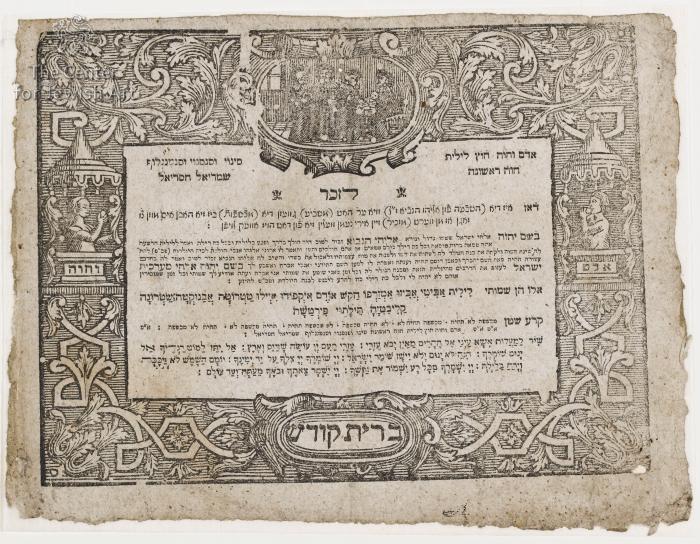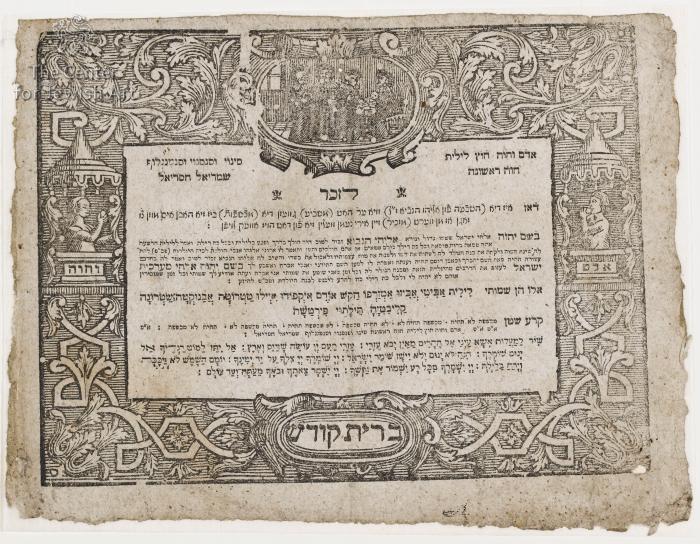Obj. ID: 53851 Amulet for a newly born male child, Germany, circa 1750

sub-set tree:
A | Abstract | Abstract geometric
O | Ornamentation: | Main text framed
C | Children
A | Adam and Eve
C | Circumcision
|
The following description was prepared by William Gross:
This amulet for a newly born male child is one of a pair that is among the most elaborate printed amulets known and certainly among the relatively few German printed amulets known from the 18th century. Its companion piece, a similarly decorated amulet for a female child, is also in the Gross family collection The text in the middle is surrounded by a baroque-designed decorative border. This overall design features depictions of both Adam and Eve, with apples, and a scene of the circumcision ceremony. The texts are in both Hebrew and Yiddish and include the traditional "shir le-ma'alot" prayer, supplication to Eliyahu Hanabi, the patron of the circumcision ceremony, and specific formulas against lilith. As is quite common on birth amulets, there is mentioned here the names of Sanoi, Sansanoi and Samgalaf, the three angels whose invocation protects the mother and child against Lilith, who, according to legend, wishes to harm the child during the beginning of its life. This printed talisman, as well as its pair for the female child, 027.011.063, in the gross family collection, were printed in southern Germany. Most of the Jews there lived in small communities, in rural areas, where the folkways that often give rise to the making and use of amulets were present.


